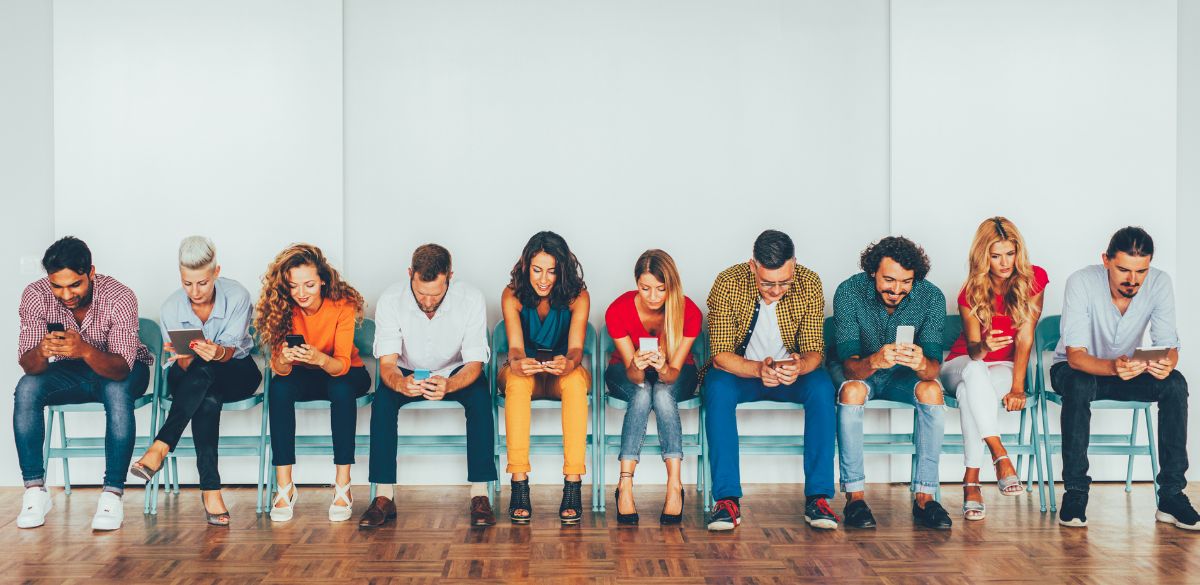
We live in an era where connection is just a click away. With smartphones in our pockets and apps that notify us the second someone “likes” our post or sends a message, it would seem that we’re the most socially connected generation in history. But something deeper is brewing. Despite being digitally tethered to hundreds—if not thousands—of people, we’re lonelier than ever. This is the social media paradox: being more connected, but more alone.
At Remin.site, we believe in preserving what truly matters—our memories, stories, and the bonds that make life meaningful. But as we increasingly substitute real interactions with digital impressions, we must ask: are we truly connecting or just broadcasting?
Introduction: A Hyperconnected World
With over 5 billion people active on social media worldwide, it’s clear that digital platforms have revolutionized communication. Facebook, Instagram, TikTok, and X (formerly Twitter) promise connection, belonging, and visibility. Yet, a 2023 study by Cigna found that over 60% of U.S. adults report feelings of loneliness. This contradiction is not just psychological—it’s cultural, spiritual, and generational.
“We’ve never been more connected, and yet the human touch has never felt so distant.” — Remin
- 24/7 accessibility doesn’t equal presence.
- Digital interactions often lack emotional depth.
- Validation through likes replaces meaningful support.
Loneliness used to be circumstantial. Now, it’s becoming structural.
Understanding the Social Media Paradox
A Brief History of Online Connectivity
The journey began with promise. Emails made long-distance relationships easier. Chatrooms gave introverts a voice. Social networks built bridges across borders. But as platforms evolved from communication tools into content ecosystems, our roles shifted—from participants to performers. The more we posted, liked, and scrolled, the more we felt strangely… empty.
According to Statista, global social media users grew from 2.7 billion in 2017 to 5.1 billion in 2024. But the same period saw a surge in loneliness and depression rates, especially among youth.

Social Media: Tool for Connection or Illusion?
We share moments, but we don’t always share ourselves. We scroll through vacation photos, political rants, perfect morning lattes—but rarely reveal our hearts. Social media gives the impression of constant connection, but it’s often built on fragmented interactions, fleeting attention, and curated personas.
This illusion of intimacy can be disorienting. Someone “likes” your post about grief, but doesn’t call. A friend sends a reaction emoji instead of asking how you really are. The result? Shallow interactions, masking deep loneliness.
Digital Loneliness: A Growing Psychological Concern
Data and Statistics on Rising Loneliness
In 2023, the U.S. Surgeon General declared loneliness a public health epidemic. Prolonged isolation, worsened by the pandemic, has made digital connection feel like a lifeline. But over-reliance on social media can backfire, especially when it’s used as a substitute for face-to-face interaction.
According to the Centers for Disease Control and Prevention (CDC):
- 1 in 2 adults reports feeling lonely regularly.
- Social isolation increases the risk of premature death by 29%.
- Young adults (18–24) report the highest rates of loneliness, despite being the most online.

Case Study: Gen Z and Online Isolation
They grew up with screens in hand. They know how to FaceTime, tag, swipe, and stream. But Gen Z is also the loneliest generation ever recorded. Many spend hours on TikTok but hesitate to make a phone call. They crave authenticity but are trained in algorithms.
One 2024 survey by Pew Research showed:
- 58% of Gen Z respondents feel more isolated after spending time on social media.
- Only 27% say they have meaningful friendships offline.
- Over 40% use social media to escape feelings of sadness or emptiness.
This generation isn’t weak—it’s overwhelmed. And it’s not their fault. The systems we’ve built reward engagement, not emotional fulfillment.
Social Media’s Impact on Mental Health
Algorithmic Addiction and Dopamine Loops
Ever noticed how hard it is to stop scrolling? That’s no accident. Social platforms are designed to be addictive. They manipulate the brain’s reward system—every like, share, or view gives a small dopamine hit, creating a feedback loop of craving and checking.
This constant engagement can lead to:
- Anxiety from unpredictability and overstimulation.
- Depression from comparison and inadequacy.
- Sleep disruption, especially among teens and young adults.
The American Psychological Association has linked excessive social media use with increased symptoms of anxiety and depression in adolescents. Yet, many feel unable to stop. Why? Because the platforms are their social lifeline—and their emotional prison.

The Role of Online Validation and Anxiety
In the digital age, many of us tie our worth to our visibility. A post that performs well makes us feel seen. One that flops feels like a personal failure. This reliance on validation breeds performance anxiety, low self-esteem, and emotional exhaustion.
But life is not a feed. Your value is not your metrics. And silence doesn’t mean you’re not loved—it might mean someone is simply off the grid, living real life.
At Remin.site, we invite you to pause. Reflect. And remember: your presence is more powerful than your profile. Your story, your voice, your legacy—it matters. Let’s preserve the parts of you that can’t be captured by a selfie or a reel.
Real vs Virtual Relationships: Are They Equal?
The Decline of Deep, In-Person Bonds
Before the age of apps, relationships were built through time, presence, and shared experiences. Today, many of our interactions are limited to emojis, reactions, and quick texts. While efficient, this convenience comes at a cost—depth is often sacrificed for speed.
We may have hundreds of contacts, but how many people truly know us? According to MIT social scientist Sherry Turkle, “we’re getting used to a new way of being alone together.” And that’s the paradox—being surrounded, yet solitary.
- Conversations are replaced by comments.
- Listening is replaced by scrolling.
- Presence is replaced by availability.
At Remin.site, we believe that real connection doesn’t need to be loud or constant. It just needs to be honest—and human.
Parasocial Relationships and Misplaced Intimacy
We follow influencers, celebrities, and creators who feel familiar. We know their pets’ names, their routines, their struggles. But these are parasocial relationships—one-sided bonds where one party doesn’t even know the other exists.
While these connections can offer comfort, they can also distort our expectations of real-world relationships. Instead of nurturing our actual friendships, we end up emotionally investing in personas. It’s not fake—it’s just incomplete.
“We were made to be known, not just noticed. And that’s something social media can’t always offer.” — Remin
Rebuilding Genuine Connection in the Digital Age
Tips for Meaningful Online Engagement
We don’t need to abandon social media—we just need to reclaim how we use it. Here are a few intentional practices to turn screen time into soul time:
- Respond to people with voice messages instead of quick replies.
- Set a reminder to call one friend per week—just to ask how they really are.
- Unfollow accounts that drain your energy or trigger comparison.
- Share stories, not just pictures. Let people into your thoughts, not just your feed.
- Prioritize community platforms that foster dialogue over performance.
One of the best ways to preserve and share who you are—beyond the highlight reel—is through projects like Remin.site. Store your memories, voice messages, beliefs, and legacy. Pass them down not as data, but as meaning. Because connection should last beyond the scroll.
Digital Detox: When Less Is More
A digital detox doesn’t mean going off-grid forever. It’s about reclaiming your attention. Creating space for reflection. Letting silence speak louder than the buzz of notifications.
Try this:
- Schedule one day per week with no social media.
- Leave your phone in another room during meals or walks.
- Journal or voice-record your thoughts before reaching for your screen.
- Use apps like Forest, Freedom, or Digital Wellbeing to limit distractions.
These small boundaries can lead to big breakthroughs in clarity, presence, and emotional connection.
Promoting Offline Community and Interaction
Rebuild the forgotten art of being together—without filters or screens. Join a local group. Start a shared hobby. Reignite family dinners. Volunteer in your neighborhood. Not for a photo, but for presence.
And when you find those moments—capture them meaningfully. At Remin.site, we offer a sacred space to record your stories, letters, and lessons. Because in a world of endless sharing, some things are still meant to be treasured.

Conclusion: Finding Balance in the Social Media Era
The social media paradox won’t disappear overnight. But awareness is the first step. We can choose connection over performance. Presence over pressure. Meaning over metrics.
Being “seen” online is not the same as being known. Being busy with messages doesn’t always mean we’re loved. But we can change that—by being brave enough to unplug, reach out, and invest in what’s real.
Death is not the end, and neither is digital silence. At Remin.site, we help ensure that your voice, values, and memories outlive the moment. Because true connection begins when we remember who we are—and why we matter.
“Connection is not about proximity. It’s about presence. And sometimes, the most meaningful moments are the ones no one else sees.” — Remin
FAQs About the Social Media Paradox
Q1: Why does social media make people feel lonely?
While social media offers broad access to people, it often lacks emotional depth. Users may feel isolated when their online interactions are superficial or performative.
Q2: Are online friendships less valuable than real-life ones?
Not necessarily. Online friendships can be deep and supportive. But face-to-face relationships tend to build trust and empathy more effectively due to physical presence and nonverbal cues.
Q3: Can social media be used in a healthy way?
Yes. By setting boundaries, using platforms with intention, and prioritizing meaningful engagement over passive scrolling, social media can be a positive tool.
Q4: What is a digital legacy, and how can I preserve it?
A digital legacy includes your memories, thoughts, and stories shared online or stored digitally. You can preserve it meaningfully through services like Remin.site, where your voice, wisdom, and history can be passed down to loved ones.
